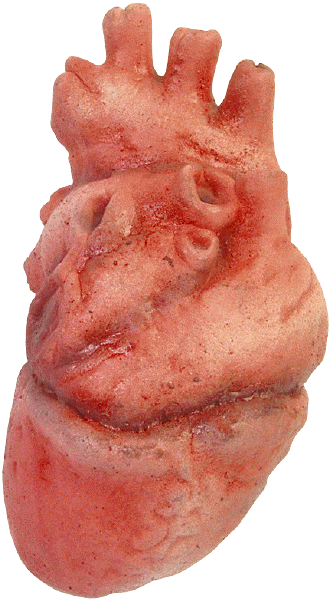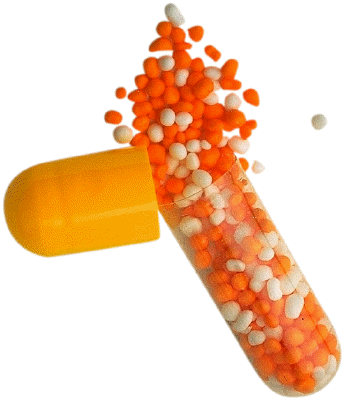Heart Arrhythmia:
Subduing Electrical Storms of the Heart

Day in and day out, our hearts have the seemingly endless task of pumping blood through the 62,000 miles or arteries, veins and capillaries in our bodies. Seventy or so beats a minute, 4,200 beats an hour, 100,800 beats a day---it adds up fast, and most of us never give it a moment's thought.
If your lub-dub becomes a lub-lub-a-dub or lub-a-dub-dub, however, it's going to attract attention---either yours or your doctor's. Such irregular heartbeats, called arrhythmia, occur when nerves that regulate the contraction of the heart go haywire.
Normally, a heartbeat is a highly coordinated event, directed by the sequential firing of nerves that signal each chamber of the heart to contract. When all goes well, the atrial chambers and the ventricular chambers of the heart work in sequence, pumping blood to the lungs and the rest of the body. When things go awry, the nerve signals may be delayed, or the nerves may fire more often than necessary. The chambers may not pump in proper sequence. The end result is that the heart pumps blood less efficiently.
In the case of Joel Levine of Pine Brook, New Jersey, blood flow was so disturbed that he would faint during episodes. "My arrhythmia kept getting worse, despite changes in medication," he says. "Finally, it got so bad that I was having an attack a day." This was inconvenient, to say the least. But it speaks for his skill as a home furnishings salesman that he did not lose his job despite occasionally ending up on the floor. "He would try to lie down if he knew he was going to faint," explains his wife, Anne. "There was no hiding that something was wrong."

Arrhythmia comes in all sorts of variations. Some types, such as atrial fibrillation (chaotic, quivering contractions), the kind Joel Levine had, may be upsetting. But since they rarely cause serious symptoms, they're not likely to kill you. Other types, such as ventricular fibrillation, are deadly.
"People with serious arrhythmia are usually under a doctor's care," says Michael A. Brodsky, M.D., associate professor of medicine at the University of California, Irvine, and director of the Cardiac Electro physiology/Arrhythmia Service at the University of California, Irvine, Medical Center. Indeed, it's often a doctor who discovers the problem, since arrhythmia frequently has no apparent symptoms, he adds.
What makes the heart get out of sync? In serious cases, disease of the coronary arteries or heart muscle is the most likely cause, Dr. Brodsky says. But in some cases, and often in conjunction with heart disease, mineral imbalances interfere with the heart's normal nerve function.
Nutritional therapy for arrhythmia focuses on two minerals in particular: magnesium and potassium. Nerve cells make use of both to help fire off messages, and a shortage of either one can cause life-threatening problems.
Doctors have known for some time just how vital potassium is for normal heartbeat. Magnesium is an entirely different story, however. "Apparently, many doctors still don't realize how important a role this mineral can play in some heart patients," says Carla Sueta, M.D., Ph.D., assistant professor of medicine and cardiology at the University of North Carolina at Chapel Hill School of Medicine. "We see patients referred by doctors from all over our state, and magnesium levels have not been routinely checked."
Here's what research has to say about these two heart-healthy minerals.
Magnesium Helps Hearts Stay Regular
Several studies have shown that when it comes to certain types of arrhythmia, magnesium can save lives.
One study, by Dr. Sueta and her colleagues at the University of North Carolina at Chapel Hill, found that the risk of developing potentially fatal ventricular arrhythmia was reduced by more than half in people with heart failure who received large intravenous doses of magnesium compared with those who did not receive the mineral.
"This is important, because ventricular arrhythmia can progress to ventricular fibrillation, which can result in sudden death," Dr. Sueta explains. The study showed that magnesium reduced the incidence of several types of ventricular arrhythmia by 53 to 76 percent.
Food Factors
Mineral balance plays an important role in regulating heartbeat. But other dietary factors can also throw your heart out of sync. Here are two items to avoid and one to add to your anti-arrhythmia diet.

Go fish. Arrhythmia is most likely to occur after blood flow to the heart is blocked, which is exactly what happens during a heart attack. Although it hasn't been proven in humans, a study with laboratory animals showed that a diet high in fish oil (omega-3 fatty acids helps reduce the likelihood of fatal heart arrhythmia sometimes associated with heart attack.
Doctors suggest that you replace the saturated fat in your diet with fish oil by substituting salmon or mackerel for beef, chicken or dairy products several times a week. If you want to take fish oil supplements, discuss amounts with your doctor, suggests Michael A. Brodsky, M.D., associate professor of medicine at the University of California, Irvine, and director of the Cardiac Electro physiology/Arrhythmia Service at the University of California, Irvine, Medical Center.
Stick to herbal brews. A small amount of caffeine (less than 300 milligrams a day, about three cups of brewed coffee) doesn't seem to cause many problems. But more than this amount may aggravate heartbeat irregularities, some experts say.
Be a party pooper. When it comes to heavy drinking, evidence is firm: People who abuse alcohol not only have a higher than normal risk of heartbeat irregularities but also are more likely to die suddenly and unexpectedly, a fate that may be linked to fatal arrhythmia. Even moderate drinking---no more than a drink or two a day---may increase your risk by depleting body stores of magnesium and potassium.
Not everyone with arrhythmia needs to stop drinking entirely, Dr. Brodsky says. "I tell people to keep diaries of the foods they eat and drink, their activities and their symptoms," he explains. "If we see a trend develop, they may have to make some behavior changes, such as cutting back on alcohol."
****************Joel Levine, for instance, found that his attacks stopped completely within 24 hours of his first dose of 400 milligrams (the Daily Value).
Intravenous magnesium, says Dr. Sueta, is now considered standard therapy for two types of arrhythmia: torsades de pointes, an unusual type of ventricular arrhythmia, and ventricular arrhythmia induced by digitalis, a commonly prescribed heart drug.
And researchers are doing preliminary work to see if people with heart disease who take oral magnesium supplements can reduce their chances of developing arrhythmia. "Right now we're trying to establish a dosage that raises people's blood levels of magnesium enough to do some good," Dr. Sueta says.
In the meantime, both she and Dr. Brodsky test all of their heart patients for magnesium deficiency. They prescribe oral magnesium supplements or intravenous magnesium when blood levels are low and sometimes oral supplements when blood levels are normal but symptoms suggest it might help. "If blood levels are low, you can be pretty sure someone is deficient," Dr. Brodsky says. "But people can have low tissue stores of magnesium and still have normal blood levels."
One thing on which more doctors than ever apparently agree is that a fair number of people with heart problems can benefit from getting enough magnesium. "I'd say 50 60 percent of the people I see have at least mild magnesium deficiencies," Dr. Brodsky says.
Getting Enough Magnesium

Studies have shown that 65 percent of all people in intensive care units and 11 percent of people in general care sections of hospitals are deficient in magnesium, according to Dr. Sueta. So are 20 to 35 percent of people who have heart failure. "This is much more common than most people realize," she adds.
Magnesium deficiency can be induced by the very drugs meant to help heart problems. some types of diuretics (water pills) cause the body to excrete both magnesium and potassium, as does digitalis. And magnesium deficiency is often at the bottom of what's called refractory potassium deficiency, Dr. Brodsky adds. "The amount of magnesium in the body determines the amount of a particular enzyme that determines the amount potassium in the body," he explains. "So if you are magnesium-deficient, you may in turn be potassium-deficient, and no amount of potassium is going to correct this unless you are also getting enough magnesium."
If you have arrhythmia, talk to your doctor about the possibility of magnesium supplementation, Dr. Brodsky suggests. Have your blood level of magnesium checked, and if you start taking magnesium supplements, have your blood levels of magnesium and potassium checked regularly, especially if you are taking large amounts of either of these minerals.
"How much magnesium you need to take depends on the results of your blood tests," Dr. Brodsky says. "Not everyone needs to take the same amount."
Both Dr. Brodsky and Dr. Sueta give their patients supplements of magnesium lactate. Both magnesium lactate and magnesium gluconate are easily absorbed and are less likely to cause diarrhea than magnesium oxide and magnesium hydroxide, the other forms of magnesium. (Magnesium hydroxide is found in Phillips' Milk of Magnesia, Mylanta and Maalox.)
 "I generally give my patients either Slow-Mag or MagTab, up to about six tablets---about 450 milligrams---a day," Dr. Brodsky says.
"I generally give my patients either Slow-Mag or MagTab, up to about six tablets---about 450 milligrams---a day," Dr. Brodsky says.
He has found that magnesium can help heart medications such as digoxin work better. "Most people won't be able to go off their drugs completely, but they may be able to cut their dosages," Dr. Brodsky says. It's important to cut dosage slowly, over time, with your doctor's supervision, he adds. Stopping abruptly could make your heart problems worse.
Although magnesium is considered to be a fairly safe mineral, even in high doses, don't take supplemental magnesium without medical supervision if you have kidney or heart problems. Your heart or breathing could slow down too much.
Studies have shown that men get about 329 milligrams of magnesium daily, while women average 207 milligrams. The highest concentrations of magnesium are found in whole seeds such as legumes, nuts and unmilled grains. Bananas and green vegetables are also good sources.
Potassium Powers Healthy Hearts
There's no doubt that potassium is just as important as magnesium for regular heartbeat. And doctors know it. In heart patients, low potassium levels are likely to be recognized and quickly corrected. Heartbeat irregularities, along with muscle weakness and confusion, are among the classic signs of potassium deficiency.

"Unlike magnesium, potassium levels are carefully regulated in the kidneys, and the body normally conserves potassium," Dr. Brodsky says. People who have normal kidney function and healthy hearts usually have adequate blood levels of potassium, even if they eat only a serving or two of fruits and vegetables a day.
People run into severe potassium deficiency that causes heart arrhythmia only when something interferes with the kidneys' potassium-hoarding tendency. "People who take thiazide diuretics or digitalis, who have poorly functioning kidneys or who are alcoholics often become low in potassium unless they take supplements," Dr. Brodsky says. Prolonged diarrhea or vomiting and laxative abuse can also cause dangerously low potassium levels.
Here again, the amount of potassium each person should take depends on blood levels of this mineral. Too much potassium is as bad as too little, which is one reason potassium supplements containing more than 99 milligrams per tablet (the amount found in a bite or two of potato) are available only by prescription. Potassium supplements should not be taken by those with diabetes or kidney disease or by those using certain medications, including nonsteroidal anti-inflammatory drugs, potassium-sparing diuretics, ACE inhibitors and heart medications such as Heparin.
Prescriptions for Healing

To prevent potential problems with heart arrhythmia, experts recommend aiming for the Daily Values of these two nutrients.
Nutrient: Magnesium Daily Amount: 400 milligrams
Nutrient: Potassium Daily Amount: 3,500 milligrams
MEDICAL ALERT: If you have been diagnosed with a heart arrhythmia, you should be under a doctor's care.
Mineral balance is important to a beating heart, but people with irregular heartbeats should take mineral supplements only under medical supervision. That's because the amounts of minerals they need to take depend on their blood levels, which must be carefully monitored.
People with kidney problems should check with their doctors before taking supplemental magnesium.
Potassium supplements should not be taken by those with diabetes or kidney disease or by those using certain medications, including nonsteroidal anti-inflammatory drugs, potassium-sparing diuretics, ACE inhibitors and heart medications such as Heparin.
"Even though doctors may advise their patients to eat more potassium-containing foods, if they're on high-dose diuretics there's no way they're going to get all of the potassium they need from foods alone," Dr. Sueta says.
The Daily Value for potassium is 3,500 milligrams. Studies show that among the general population, intakes vary widely---anywhere from 1,000 to 3,400 milligrams a day. Eating lots of fruits, vegetables and fresh meats and drinking juices is the way to pack in the most potassium. A medium banana supplies 451 milligrams of potassium; one cup of cubed cantaloupe, 494 milligrams; and one cup of cooked cabbage, 146 milligrams.
Return to Main Cardiovascular Disease Page